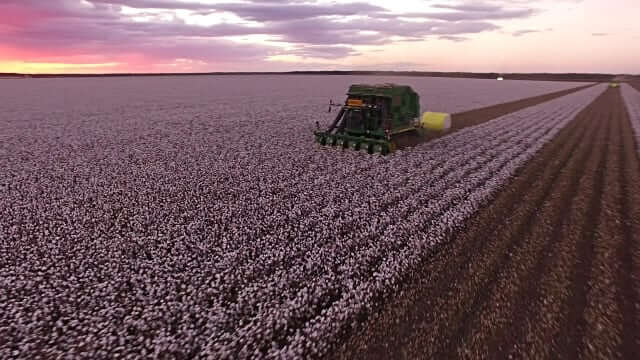
Agricultural News
Gap, Inc. Clothing Retailer Joins U.S. Cotton Trust Protocol in Support of Sustainable Production
Fri, 11 Dec 2020 14:13:48 CST
 Clothing retailers are increasingly concerned about using sustainable materials and a new program called the U.S. Cotton Trust Protocol is focused on meeting their demands.
Clothing retailers are increasingly concerned about using sustainable materials and a new program called the U.S. Cotton Trust Protocol is focused on meeting their demands.
Gary Adams, president and CEO of the U.S. Cotton Trust Protocol was recently interview by Radio Oklahoma Agriculture Network Associate Farm Director and Editor KC Sheperd.
This is a new sustainability initiative with the U.S. cotton industry, he said.
We know there are a lot of positives going on with our farmers and how they raise their crops, Adams said.
One of the primary objectives in launching the trust protocol is to introduce retailers to the program and how it can benefit them, Adams said.
Gap, Inc., a globally recognized clothing retailer, has just signed up with the Trust Protocol.
We're excited to have such an iconic brand as the Gap, Adams said.
According to a press release from the U.S. Cotton Trust Protocol, Gap Inc.'s target of sourcing 100 percent of its cotton from more sustainable sources by 2025 is set across its collection of purpose-led lifestyle brands including Old Navy, Gap, Banana Republic and Athleta.
The Trust Protocol will help Gap Inc. meet this goal by providing verified data on the sustainability practices used on U.S. cotton farms.
Participating cotton growers will benefit from data-driven insights and best practices from across the industry, as well as a stronger connection to brands asking for sustainably grown cotton.
The Trust Protocol opened for membership in October 2020 and provides brands and retailers with the critical assurance they need to prove that the cotton in their supply chain is more responsibly grown.
Choosing Trust Protocol cotton will give brands and retailers the critical assurances they need that the cotton fiber element of their supply chain is more sustainably grown with lower environmental risk.
The new program is a positive initiative among a boatload of negative challenges faced by cotton farmers this year.
This year has certainly been a challenge as we continue to push ahead on the protocol, Adams said.
Weather was a big challenge this year, especially in parts of the southwest, western Texas and southwestern Oklahoma where drought significantly reduced yields.
An historic ice storm interrupted cotton harvest in Oklahoma and damaged the crop.
In other parts of the cotton belt, an extremely active hurricane season hurt both quality and quantity, Adams said.
Another challenge was lower market prices.
Prices dropped January through May, he said, even though they have recovered somewhat.
The USDA recently reduced their estimate of the cotton crop by more than one million bales.
It's been a year where the negative economic impacts have been felt all the way from the farm through the retailer, Adams said.
In the new year we want to continue to expand the protocol with more farmers and retailers, he said.
Certainly, as we look at 2021 with a new administration and staff, educating them on the many challenges faced by farmers and the cotton industry will be important, Adams said.
Click on the listen bar below to hear more of KC's interview with Gary Adams.
WebReadyTM Powered by WireReady® NSI
Top Agricultural News
More Headlines...





